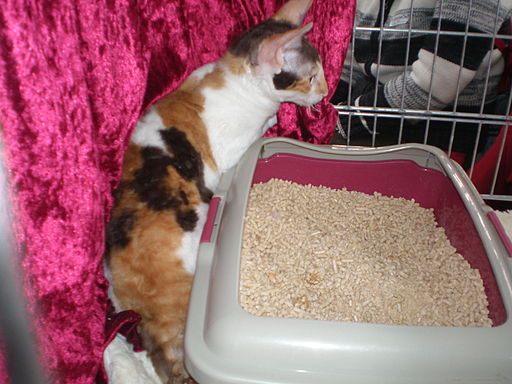Women carrying IgG antibodies to Toxoplasma gondii when giving birth have a higher risk of self-harm or suicide later on, especially if antibody levels are high, researchers from the Statens Serum Institut, Copenhagen, Denmark, and the University of Maryland, USA, reported in Archives of Psychiatry. Toxoplasma gondii is a common protozoa (parasite), which can migrate to the brain after being ingested – it can remain in the brain in a cystic form in neurons and glial cells.
Human Toxoplasma gondii infection sources include improperly cooked contaminated meat, unwashed vegetables, and cat litter boxes.
Women who tested positive for the antibody had a 1.53 times higher risk of self-directed violent behavior compared to women who tested negative, the authors wrote. For those with the highest concentrations of the parasite, the risk was 1.91 times higher.
Toxoplasma gondii tends to favor the prefrontal cortex and the amygdala – areas of the brain that play major roles in regulating behavior and emotions. Abnormalities in these areas are common among people with schizophrenia.
In a prior study, the same scientists had found an association between Toxoplasma gondii and suicidal behavior. However, self-directed violent events occurred before they were tested for any possible infection.
In this latest study, Teodor T. Postolache, MD, and team set out to determine what the predictive effect for Toxoplasma gondii (T. gondii) might be on the risk of self-harm in infected new mothers. They tested their babies soon after they were born for the presence of antibodies. These antibodies could only have come from their mothers.
26.8% of 45,271 Danish women who had recently given birth between 1992 and 1995 carried the antibodies.
The authors also gathered and analyzed data from the Danish Psychiatric Central Research Register to determine whether any and how many of the women had a personal and/or family history of mental illness.
The women were followed up until 2006; by then there were 488 incidences of attempts at self-harm – an incidence rate of 8.2 per 10,000 person-years.
The researchers found that the risk of suicide attempts was much higher among the infected women with a history of mental illness, compared to the infected ones without such a history.
The authors added:
“Because many patients with, for example, mood or substance use disorders may not have been treated as inpatients or outpatients in psychiatric clinics, we cannot exclude that some of the effect of T. gondii infection in women without a psychiatric diagnosis is mediated by an elevation of risk for mental disorders.”
The scientists are not sure what the likely mechanism used by T. gondii is that may cause women to harm themselves. They believe it is most likely through a neuroimmune patch, because the immune system controls the chronic infection, particularly by tumor necrosis factor-alpha and interleukin-6 (types of pro-inflammatory cytokines). The peripheral blood and cerebrospinal fluid of people who tried to commit suicide have been found to have higher-than-normal levels of necrosis factor-alpha and interleukin-6.
The authors believe that the link between higher antibody levels and a greater risk of self injury may be because the infection or its reactivation occurred more recently. People’s levels of specific antibodies tend to be high immediately after an infection, and then gradually descend.
In an Abstract in the same journal, the researchers concluded:
“Women with a T gondii infection have an increased risk
of self-directed violence.”
T. gondii is a species of parasitic protozoa. The parasite can commonly use the cat as a primary or intermediate host, and many types of warm blooded animals as intermediate hosts, including humans.
The cat is this parasite’s primary host, because it is only in cats that the sexual part of its life cycle occurs. The asexual part of the parasite’s life cycle can take place in other warm blooded animals, including birds, mice, other cats, as well as humans – these are called intermediate hosts. Rodents are the most common intermediate hosts.
Most cases of toxoplasmosis, the disease of which T. gondii is the causative agent, are generally self limiting and minor.
However, if a pregnant mother becomes infected, the consequences for the fetus may be fatal. Apart from a high risk of death, an infected fetus, can be after birth, suffer from epilepsy, spasticity, cerebral palsy, deafness, blindness, and mental retardation.
Humans or cats with weakened immune systems are also vulnerable to serious complications from toxoplasmosis.
T. gondii is carried by over 60 million people in the USA, according to the CDC (Centers for Disease Control and Prevention). However, most people are not aware they are infected, because their immune system prevents the parasite from causing illness.
If signs and symptoms of toxoplasmosis do appear, they may include:
These flu-like symptoms may last for a few days, or persist for several weeks.
Some people become infected when they clean the cat litter box
You can become infected by:
- Touching your mouth with your hands after gardening
- Cleaning a cat litter box
- Touching anything that came into contact with cat feces
- Eating raw or undercooked meat, especially lamb or pork
Written by Christian Nordqvist
